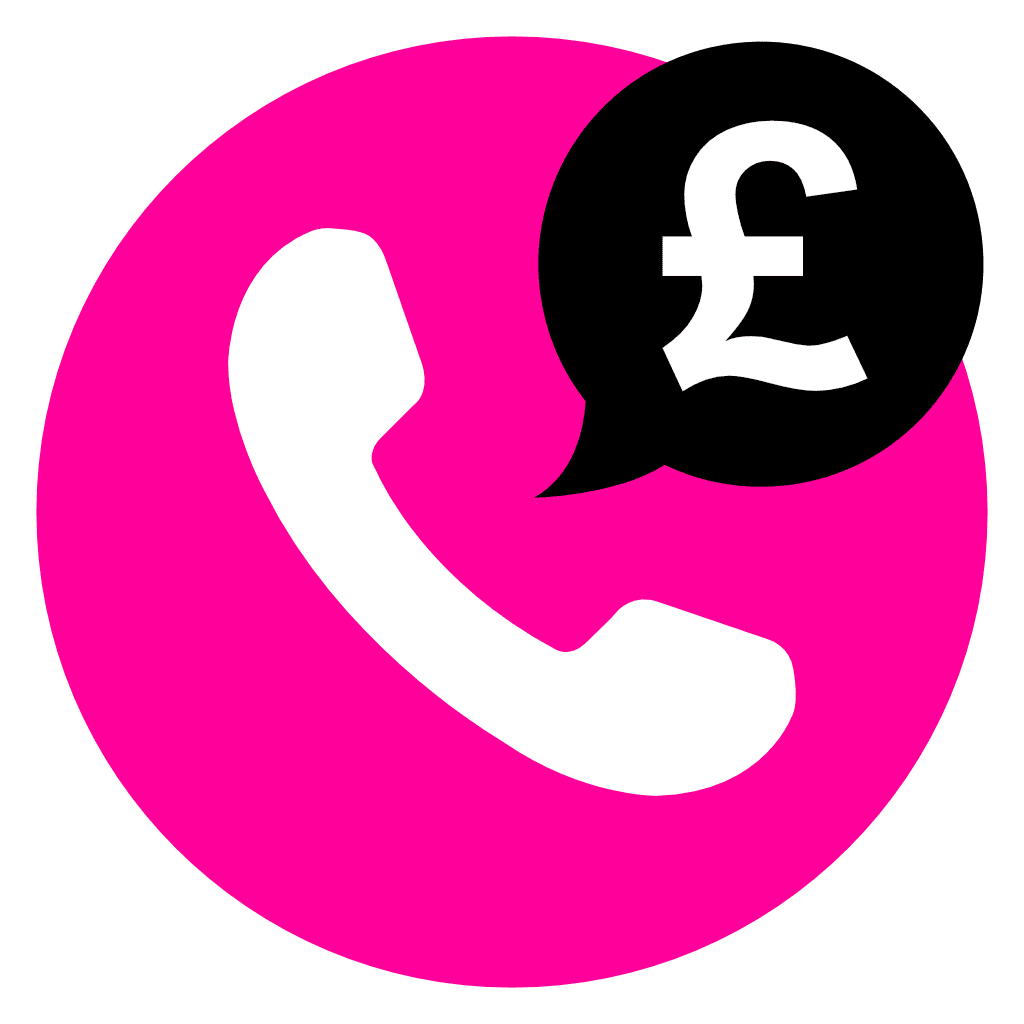When it comes to communication and collaboration solutions, RingCentral and Zoom are two of the most prominent names in the business world. Both offer a range of features tailored for modern businesses, but which one is the best fit for your company? In this analysis, we will compare the features and costs of RingCentral vs Zoom to help you make an informed decision based on your organisation’s needs.
Overview of RingCentral vs Zoom
RingCentral is primarily a cloud-based communications platform, offering VoIP solutions, video conferencing, messaging, and team collaboration tools. It is particularly popular among businesses that require robust phone systems integrated with video and messaging services.
Zoom is best known for its video conferencing capabilities but has expanded into a full suite of communication solutions, including Zoom Phone, Zoom Meetings, Zoom Rooms, and Zoom Chat. While Zoom’s core focus remains on video, it has adapted to offer businesses a more holistic communication platform.
| Category | RingCentral | Zoom |
|---|---|---|
| Primary Focus | VoIP telephony, unified communications (phone, video, messaging) | Video conferencing and communication platform |
| Video Conferencing | RingCentral Video with HD quality, screen sharing, and up to 500 participants (Ultimate plan) | Industry-leading video conferencing with HD quality, webinars, breakout rooms, and up to 500 participants |
| VoIP and Phone System | Comprehensive VoIP with call routing, call queuing, virtual numbers, and CRM integration | Zoom Phone offers basic VoIP features but lacks the depth of RingCentral’s phone system |
| Messaging and Collaboration | Integrated messaging, team spaces, task management, and file sharing | Zoom Chat offers messaging but is secondary to video features |
| Integrations | Extensive integrations with Microsoft Teams, Salesforce, Google Workspace, Slack, etc. | Integrates with Microsoft 365, Google Workspace, Slack, and third-party apps via Zoom Apps |
| Security | End-to-end encryption, multi-factor authentication, GDPR and HIPAA compliance | End-to-end encryption, improved security features, GDPR and HIPAA compliance |
| Pricing (UK) | – Essentials: £7.99/user/month – Standard: £14.99/user/month – Premium: £19.99/user/month – Ultimate: £24.99/user/month | – Zoom Pro: £11.99/user/month – Zoom Business: £15.99/user/month – Zoom Enterprise: £19.99/user/month – Zoom Phone: from £9.99/user/month |
| Call Management | Advanced call management with features like call queuing, call forwarding, and analytics | Basic call management with Zoom Phone, including call recording and delegation |
| File Sharing | Built-in file sharing across messaging and video platforms | File sharing is available but not as integrated into the messaging and collaboration features |
| Participant Limits | Up to 500 participants (Ultimate plan) for video conferencing | Up to 500 participants (Enterprise plan) for video conferencing |
| Mobile and Desktop Apps | Unified app for phone, messaging, and video | Separate apps for Zoom Meetings, Zoom Phone, and Zoom Chat |
| Analytics | Detailed call and video meeting analytics in Premium and Ultimate plans | Advanced analytics for Enterprise plan |
| Ideal for | Businesses needing a robust telephony system with integrated collaboration tools | Businesses focused on video conferencing with occasional use of VoIP |
Key feature comparison
1. Video conferencing
- RingCentral: While video conferencing is not RingCentral’s primary feature, it does offer RingCentral Video, which supports HD video, screen sharing, and meeting scheduling. Its video capabilities are solid but may not be as seamless as Zoom’s, particularly for businesses that prioritise large-scale virtual meetings.
- Zoom: Zoom’s video conferencing capabilities are its core strength, offering high-quality HD video, breakout rooms, virtual backgrounds, webinar hosting, and large-scale meetings with hundreds of participants. Zoom is designed for businesses that rely heavily on video communication, making it an industry leader in this space.
- Winner: Zoom – for superior video quality and advanced features.
2. VoIP and phone system
- RingCentral: One of RingCentral’s major strengths is its VoIP phone system, offering a robust business telephony solution with features like call routing, call queuing, virtual numbers, and integration with CRM software. It also supports mobile and desktop apps for unified communication.
- Zoom: Zoom has expanded into VoIP with Zoom Phone, a cloud-based phone system. However, it does not yet offer the same level of depth or feature set as RingCentral. It is suitable for businesses looking to add a basic VoIP solution to their video-centric platform.
- Winner: RingCentral – for its comprehensive VoIP solution.
3. Messaging and collaboration tools
- RingCentral: RingCentral integrates messaging and team collaboration tools into its platform. Users can send direct messages, create team spaces, share files, and assign tasks. The app is designed to facilitate collaboration alongside its telephony and video offerings, creating a unified experience.
- Zoom: Zoom also offers Zoom Chat, a messaging platform for teams. However, its messaging features are somewhat secondary to its video conferencing capabilities. Zoom Chat is functional but lacks some of the deeper integration and collaboration features found in RingCentral.
- Winner: RingCentral – for more integrated team collaboration.
4. Integrations
- RingCentral: RingCentral integrates with numerous business tools, including Microsoft Teams, Google Workspace, Salesforce, and Slack. These integrations are useful for businesses that require their communication platform to work seamlessly with other business software.
- Zoom: Zoom also offers a wide range of integrations, including Microsoft Office 365, Slack, and Google Workspace. Zoom Apps allows users to integrate third-party apps directly into their video calls, making collaboration more efficient.
- Winner: Draw – both platforms offer a wide array of integrations.
5. Security
- RingCentral: RingCentral provides end-to-end encryption for voice and video calls, alongside secure messaging and file sharing. It also offers multi-factor authentication and compliance with GDPR, HIPAA, and other industry standards.
- Zoom: Zoom has improved its security significantly after earlier concerns, now offering end-to-end encryption for meetings, secure login with multi-factor authentication, and adherence to GDPR and HIPAA. For businesses handling sensitive data, Zoom’s security updates have made it a viable option.
- Winner: Draw – both platforms provide strong security features for businesses.
RingCentral vs Zoom cost comparison
RingCentral pricing
RingCentral offers a variety of plans tailored to businesses of different sizes:
- Essentials: £7.99 per user/month – includes unlimited calls within the UK, team messaging, and basic video conferencing.
- Standard: £14.99 per user/month – adds enhanced video conferencing, integrations with third-party apps, and business SMS.
- Premium: £19.99 per user/month – includes advanced call management, analytics, CRM integrations, and up to 200 participants in video meetings.
- Ultimate: £24.99 per user/month – offers unlimited storage and the ability to host video meetings with up to 500 participants.
Zoom pricing
Zoom also offers various pricing plans, but its video conferencing and Zoom Phone plans are typically split:
- Zoom Pro (Meetings): £11.99 per user/month – allows 100 participants, unlimited group meetings, and social media streaming.
- Zoom Business: £15.99 per user/month – adds cloud recording, custom emails, and managed domains.
- Zoom Enterprise: £19.99 per user/month – supports large meetings of up to 500 participants, with unlimited cloud storage and advanced analytics.
- Zoom Phone: From £9.99 per user/month – includes VoIP services, call recording, and call delegation.
Which is better for your business?
Choose RingCentral if:
- You need a comprehensive VoIP phone system with advanced telephony features.
- Your business requires an integrated platform with messaging, video, and collaboration tools in one.
- You need robust phone management with features like call queuing, routing, and analytics.
Choose Zoom if:
- Your business primarily relies on video conferencing and requires advanced features like webinars, breakout rooms, and high-participant meetings.
- You want a simple, easy-to-use video platform that your team can adopt quickly.
- Your organisation occasionally uses VoIP but does not require an in-depth telephony system.
Conclusion – RingCentral vs Zoom
Both RingCentral and Zoom offer powerful solutions for UK businesses, but the right choice depends on your specific needs. RingCentral excels in VoIP telephony and collaboration, making it ideal for companies that require a unified communications platform. Zoom, on the other hand, is the leader in video conferencing, with exceptional meeting features and ease of use.
FAQ
Zoom is the industry leader for video conferencing, offering advanced features like breakout rooms, virtual backgrounds, and webinars. RingCentral also offers video conferencing with HD quality, but Zoom provides a more specialised and robust experience for businesses focused on video communications.
RingCentral excels in VoIP, offering advanced call management features like call routing, queuing, and virtual numbers. Zoom Phone offers basic VoIP but lacks the depth of RingCentral’s system, making RingCentral the better choice for businesses that prioritise telephony.
Both platforms offer competitive pricing. Zoom’s Pro plan starts at £11.99 per user/month, while RingCentral’s Essentials plan starts at £7.99 per user/month. However, Zoom’s core focus on video and RingCentral’s strength in telephony means pricing varies depending on your business needs.
RingCentral offers a more comprehensive messaging solution, integrating team chat, file sharing, and task management into its platform. Zoom provides Zoom Chat, but it is not as robust or deeply integrated as RingCentral’s collaboration features, which are designed for team communication.
Both platforms offer extensive integrations with popular business tools like Microsoft 365, Google Workspace, and Salesforce. Zoom Apps also allow for direct integration into video calls. The choice between the two depends on which specific integrations your business requires.
Zoom is the preferred choice for large-scale meetings and webinars, supporting up to 500 participants in its Enterprise plan. RingCentral can also support up to 500 participants with its Ultimate plan, but Zoom’s focus on video makes it a better option for large virtual events.
RingCentral offers advanced call management features, including call queuing, forwarding, and analytics, making it a superior choice for businesses that need comprehensive telephony solutions. Zoom Phone offers basic call management, but it doesn’t match RingCentral’s level of functionality.
Zoom is generally considered easier to use, especially for video conferencing. Its clean interface and user-friendly design make it ideal for businesses that need quick adoption. RingCentral’s interface is also user-friendly, but its telephony features may require more configuration for new users.
RingCentral is better for team collaboration, with integrated messaging, file sharing, and task management tools that work alongside its phone and video services. Zoom provides basic messaging through Zoom Chat, but its platform is more focused on video rather than full-scale collaboration.
Both RingCentral and Zoom offer robust security features, including end-to-end encryption, multi-factor authentication, and GDPR compliance. Zoom has improved its security significantly, while RingCentral has always offered high-level protection. Both platforms secure choices for businesses handling sensitive data.

